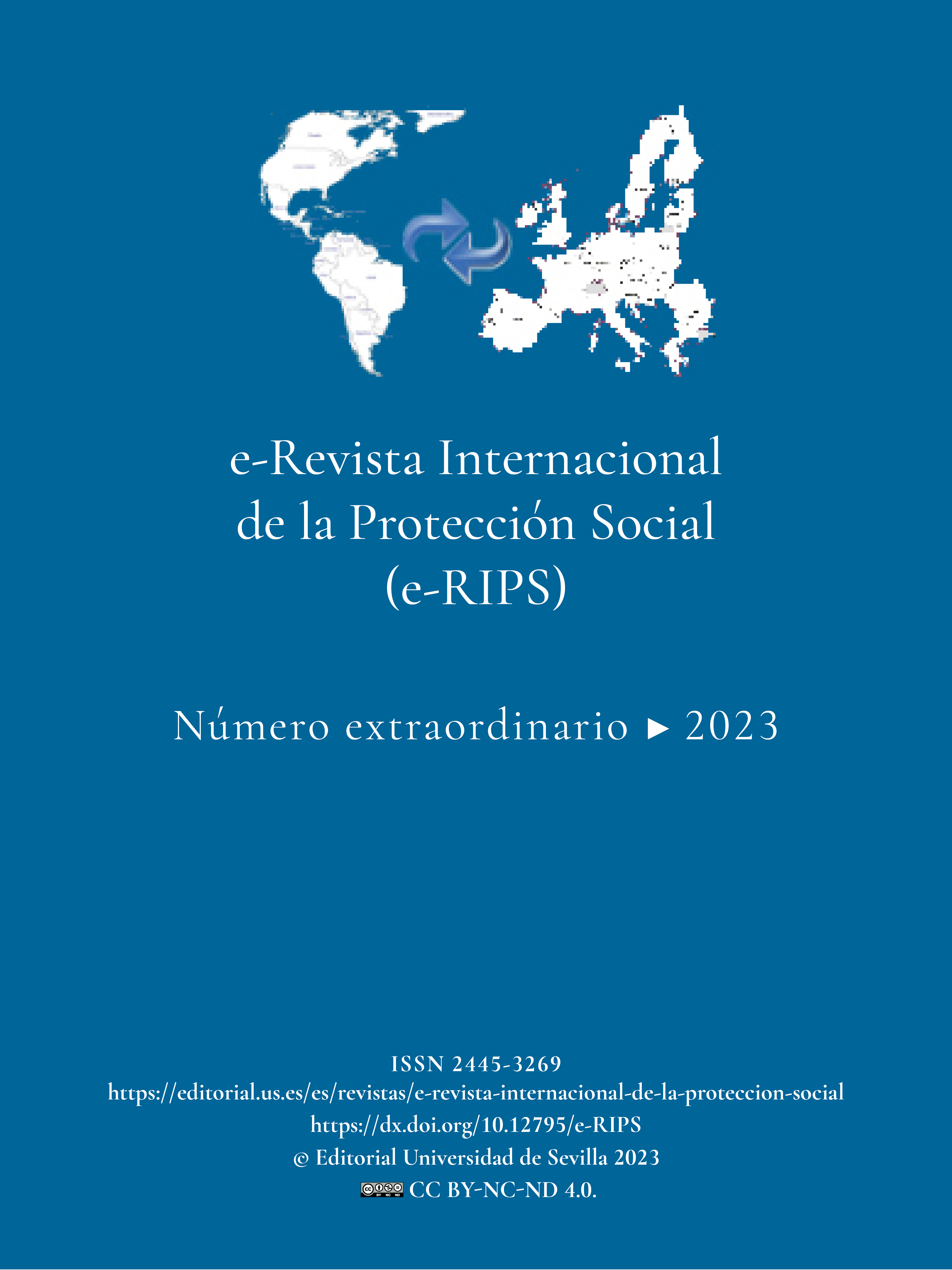The right of residence of involuntarily unemployed community workers and the risk of destitution
DOI:
https://doi.org/10.12795/e-RIPS.2023.mon.07Keywords:
Right of residence, Freedom of movement, Minimum income benefits, Involuntary unemployment, Poverty and social exclusionAbstract
EU citizens who have exercised free movement for work purposes and have become involuntarily unemployed in less than a year, either because of the end of a fixed-term contract or the unexpected termination of a contract, find themselves in a very precarious situation if they do not find another occupation or job within six months of termination. These jobseekers experience a downgrading of their right of residence, which can go as far as destitution. In such circumstances, actions aimed at reintegration into employment and financial support, such as non-contributory minimum income benefits, may be the way to promote the employability of these persons in the host Member State. However, the exception to the principle of equal treatment, which allows the State to reject their application for social assistance, undermines their right of residence to the extent that it may frustrate freedom of movement.
Downloads
References
Groenendijk, K., “Access for migrants to social Assistance: Closing the frontiers or reducing citizenship?”, in Guild, E.; Carrera, S. and Eisele, K. (eds.): Social benefits and migration. A contested relationship and policy challenge in the European Union, Centre for European Policy Studies, Brussels, 2013.
Guerrero Padrón, T.: “El derecho de residencia como factor limitativo del acceso a prestaciones de seguridad social”, Revista General de Derecho del Trabajo y de la Seguridad Social, IUSTEL, núm. 49, 2018.
Patuzzi, L. and Benton, M.: “Rethinking social security coordination: From tinkering to radical reform”, Reminder project on Role of European mobility and its impacts in narratives, debates and EU reforms, 2018, https://www.reminder-project.eu/wp-content/uploads/2018/06/D12.2-Final_June-2018.pdf
Sánchez-Rodas Navarro, C.: “La aplicación del Derecho de la Unión Europea a las prestaciones especiales en metálico no contributivas”, en Ortiz Castillo, F. y Sánchez-Rodas Navarro, C. (dirs.): Los Reglamentos de coordinación de sistemas de Seguridad Social en la Unión Europea, Laborum, 2021.
Sánchez-Urán Azaña, M. Y.: “Derecho comunitario de residencia y acceso a las prestaciones sociales de subsistencia. El alcance limitado de la libertad de circulación de los demandantes de empleo en la UE”, La Ley Unión Europea, núm. 32, 2015.
Sánchez-Urán Azaña, M. Y.: “Libertad de circulación en la Unión Europea y derechos de protección social”, 2015, https://docta.ucm.es/entities/publication/7f97c56e-fd12-483f-ba00-406ff55c49e6
Van Lancker, A.; Aranguiz, A. and Verschueren, H.: Expert study on a binding EU framework on adequate national minimum income schemes: Making the case for an EU framework directive on minimum income, 2020, https://www.eapn.eu/wp-content/uploads/2020/10/EAPN-european-minimum-income-eu-framework-expert-study_October-2020-4734.pdf
Verschueren, H.: “Free movement of EU citizens. Including for the Poor?”, Maastricht Journal of European and Comparative Law, vol. 22, n. 1, 2015.
Vonk, G., “The EU (non) co-ordination of minimum subsistence benefits: what went wrong and what ways forward?”, European Journal of Social Security, vol. 22, issue 2, June 2020.
Published
How to Cite
Issue
Section
License
Copyright (c) 2023 Thais Guerrero Padrón

This work is licensed under a Creative Commons Attribution-NonCommercial-ShareAlike 4.0 International License.
Authors being published in this journal agree to the following terms:
- Authors retain their copyright and they will guarantee to the journal the right of first publication of their work, which will be simultaneously subject to license recognition by Attribution-NonCommercial-ShareAlike (CC BY-NC-SA 4.0 DEED)
that allows others to share such work provided that the author’s name and his first publication in the e-International Review on Social Protection is stated. - Authors may take other non-exclusive distribution license agreements version of the published work (e.g. deposit in an institutional digital file or publication in a monographic volume) provided that the initial publication in this journal is stated.
- Authors are allowed and encouraged to disseminate their work via the Internet (e.g. in institutional digital files or on their website) prior to and during the submission process, which can lead to interesting exchanges and to increase citation of the published work.











